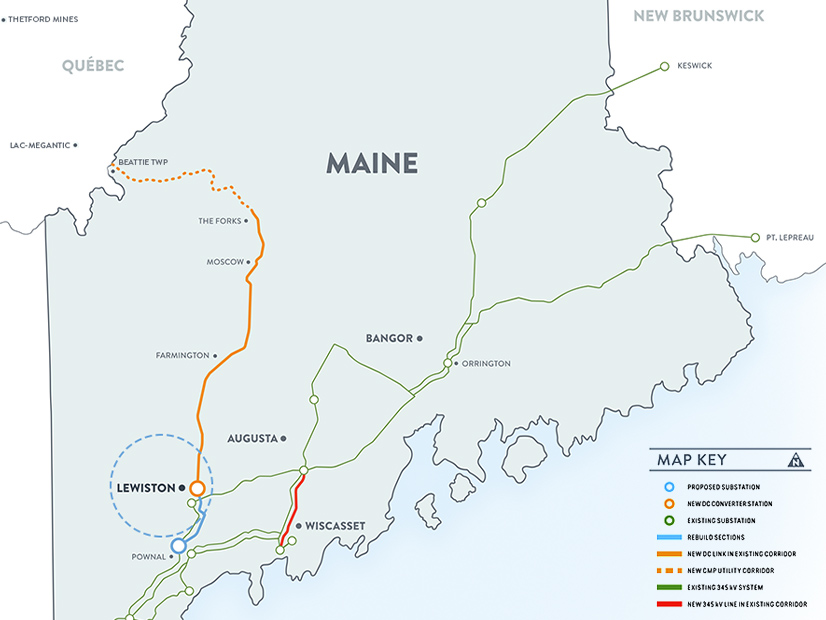Construction on Avangrid’s hotly contested New England Clean Energy Connect (NECEC) transmission project has made significant progress following a two-year pause, according to a filing submitted to the Maine Public Utilities Commission on July 1.
NECEC is a 1,200-MW transmission line intended to send power from the Québec border to Lewiston, Maine, a city in the southern part of the state. The project is the result of a competitive Massachusetts clean energy solicitation and ultimately will be funded by ratepayers, as well as by Hydro-Québec.
The project includes about 145 miles of new 320-kV HVDC transmission line, a new converter station, an upgrade to an existing substation and an AC line connecting the converter station to the substation. It also requires a series of upgrades to the local grid once it reaches the substation, including a new 26-mile 345-kV line and rebuilds of several other line segments.
According to the July 1 filing (PUC docket 2017-00232), Avangrid said it has installed 504 pole bases, 441 poles, and wires on 178 poles for the HVDC line. The project’s website says the line will require 829 structures, with most structures being monopiles.
This marks significant progress from the update filed at the beginning of this year, which indicated 187 pole bases had been set with 128 poles installed.
Regarding the AC network upgrades needed to support the line, “since construction activities resumed in December 2023, access is approximately 81% complete, foundations are 41% complete (294 complete), pole setting is 31% complete (217 complete) and wire work is 34% complete (36 circuit miles),” Avangrid wrote.
Work also is underway at the new converter station, where the foundations are in place, the company noted.
The filing indicated the total taxable investments for the project as of April 1 have reached $904 million, an approximately $200 million increase compared to April 2023, after construction resumed in October 2023. These costs represent “actual construction work in progress and an applicable allocation of overall development costs as appropriate,” the filing noted.
While the project initially was expected to cost about $1 billion, the delays have led to an approximately $500 million cost increase. In late 2023, Massachusetts passed a budget bill enabling its electric distribution companies to recover costs associated with the construction delays.
When in service, the Maine PUC’s permitting approval indicates the line and its associated power contracts will help lower energy and capacity costs in New England, bolster grid reliability and fuel security, and help reduce carbon emissions by increasing hydropower imports.
According to the project website, the line is tracking to be in-service “by 2025.” Avangrid declined to provide further comment on the status of the project.




